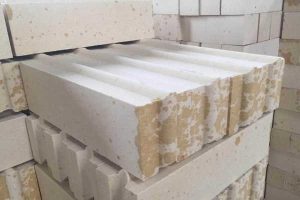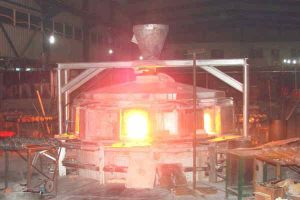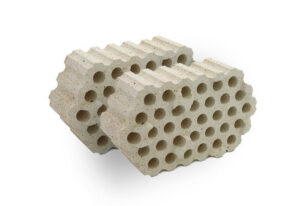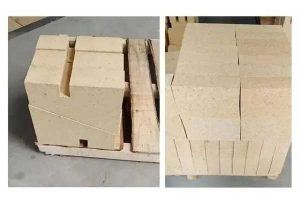Accurate Identification Of The Raw Materials Of Refractory Bricks
The different compositions of refractory bricks can be divided into five categories, nemlig: silicon-aluminum alloy alkaline series refractory bricks, ildfast murstein, karbon murstein, zirconium refractory bricks, and heat insulation bricks. Alumina refractory bricks are the first. Silicon bricks are the first acid-resistant refractory bricks.
For coke oven construction first, but for various glass, keramikk, carbon furnace, refractory brick vaults and other bearing parts of the bearing furnace, hot air furnace temperature high parts of the use, but should not be less than 600 ℃ and temperature fluctuations of heat equipment.
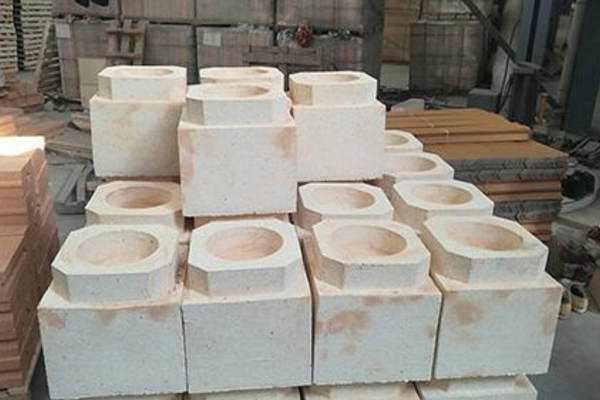
Leire murstein, it is a blast furnace, hot blast furnace, heating furnace, boiler, lime kiln, rotary kiln ceramic refractory bricks.
Høyt aluminiumoksyddannende murstein, high alumina refractory materials are composed of corundum, mullitt, og glassfase. The raw materials are natural ores of bauxite and silicate, as well as fused alumina, sintered alumina, mullite composition, and clinker of alumina and clay calcination. It is produced by sintering. derimot, the commodity is also available as fused bricks, molten bricks, murstein, and amorphous bricks. Ildfaste murstein med høy alumina er mye brukt i stålindustrien, ikke-jernholdig metallindustri, og andre bransjer.
Corundum refractory brick, which is a kind of refractory brick with corundum as the first object, can be divided into sintered corundum brick, and electrofused corundum brick.
With the continuous development of the cement industry, the requirements for refractory materials have also been put forward higher. Refractory bricks are popular because of their high-temperature resistance. Så, how do friends know the quality of refractory bricks?
The refractory brick quality inspection method is usually hammer smash brick base, listening to their sound is determined, when a dull sound “, also confirmed the refractory material internal open space or level, this brick is not suitable for processing. When the sound is balanced. Confirmation of the internal structure of the brick is better. Suitable for processing; when the sound is very clear, close to the metallic sound. It is proven that the internal sintering of refractory bricks is high and the process is difficult. It has a high density, good detail, høy styrke, and high thermal conductivity per unit volume component.
Refractory bricks have the following characteristics: chemical composition: the main components to determine the quality and performance of refractory materials; trykkfasthet: the ability to accept the maximum pressure (room temperature); motstand mot termisk sjokk: the ability to resist temperature changes without being destroyed. Flexural strength: the ability to accept shear pressure. Load softening temperature: also known as high-temperature load deformation temperature threshold, this parameter is very important to symbolize the high-temperature resistance of the material.
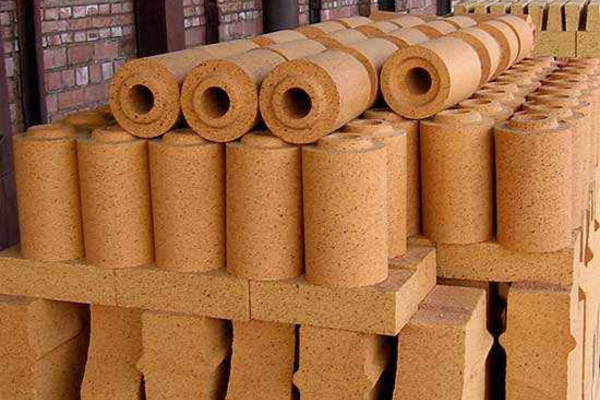
Så, is insulation brick good or refractory brick good
1. Thermal insulation performance
Refractory brick thermal conductivity is 1.0 (gjennomsnittstemperatur 350 ± 25 ℃) w / m.k ovenfor, while the thermal conductivity of insulation brick is generally in 0.2-0.4 (gjennomsnittstemperatur 350 ± 25 ℃) w / m.k. This can be concluded that the insulation performance of the insulation brick than refractory brick insulation performance is much better.
2. Ildfaste materialer
The refractories of refractory bricks are above 1400 grader, while the refractories of insulation bricks is mainly below 1400 grader.
3. Tetthet
The density of refractory bricks is basically above 2.0g/cm³, while insulation bricks are mostly light insulation materials, and density is generally 0.8-1.0g/cm³.
Omfattende, refractory bricks have high mechanical strength, lang levetid, god kjemisk stabilitet, ingen kjemisk reaksjon med materialet, og god motstand mot høye temperaturer, den høyeste varmebestandige temperaturen kan nå 1800 ℃. Den er spesielt egnet for bruk i høy- og lavtemperaturkonverteringsovner, konverteringsovner, hydrogeneringsomformere, avsvovlingstanker, and methanation furnaces in fertilizer plants, and also in hot air furnaces and heating conversion equipment in the steel industry.
Refractory brick has the advantages of high density, høy styrke, slitestyrke, good corrosion resistance, small coefficient of thermal expansion, high grinding efficiency, low noise, lang levetid, and non-staining materials. It is a high-quality grinding medium adapted to various grinding machines.
Insulation brick has heat preservation and insulation: effectively reducing energy consumption. Fireproof: reach the national standard A grade. Clean, environmental protection: will not cause secondary pollution of the air. Light weight: each square meter only weighs about 1.4 kg, reducing the load of the building. Simple production: completely break through the traditional process, and greatly shorten the construction cycle. Aesthetic: adjustable to various colors, suitable for open installation. Durable: lang levetid. 7 major advantages.
Ildfast tegl og isolasjonsmur er veldig forskjellige, their use environment, omfang, og rollen er annerledes. Ulike steder vil bruke forskjellige materialer, ved innkjøp av materialer, we have to decide which refractory material is suitable for their use according to their actual situation.

